By Michael Salfino
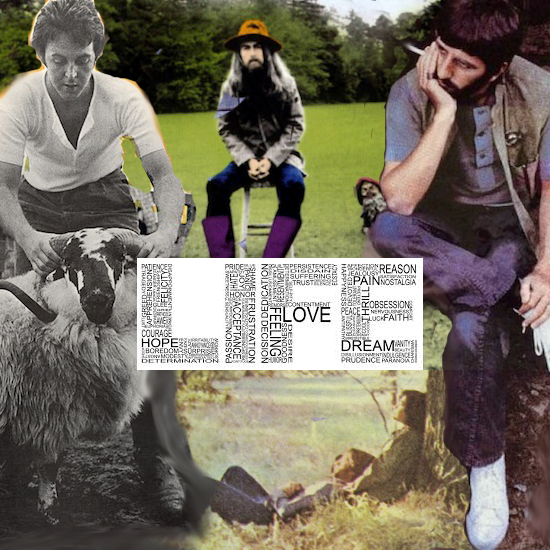 The Beatles are that rare group whose epic popularity is matched by the almost unreal quality of their artistic output. They broke up with these creative powers still intact.
The Beatles are that rare group whose epic popularity is matched by the almost unreal quality of their artistic output. They broke up with these creative powers still intact.
But how long could they have continued to function artistically as the greatest band in the world? Here, we imagine (to borrow a word) the next Beatles album that never was.
There are rules by which we must abide. Everything had to be recorded by January 1971. Despite George Harrison’s rising stature as at least Lennon and McCartney’s equal at that time, we can only put two Harrison songs on the album as was the group’s long-standing agreement. We do not get the benefit of having some of the weaker material transformed by the group environment. Think of “Come Together” without the menacing groove of McCartney’s bass riff, and that was despite Lennon essentially barring McCartney from any collaboration. After a lot of thought, here are the results. We’ll call it “What is Life,” which seems an album title all the Beatles could have agreed to. And it’s another concession to Harrison’s growing creative status. (Click the tracks to hear the songs.)

Side 1, Track 1: It Don’t Come Easy. We’re cheating already. While credited to Starr, this is clearly a Harrison track. But Harrison ended up giving all the songwriting credit to Starr in reality so why wouldn’t he have done that here? Starr kicking off an album would have shocked the world, too. As would the quality of this song as opposed to his prior, mostly jokey Beatles efforts. Recorded February 1970. Highest chart position: No. 4.
Side 1, Track 2: Another Day. Written and previewed for the Let it Be sessions. Lennon would have resisted, in all likelihood. He famously blasted it in “How Do You Sleep” (“The only thing you done was Yesterday, and since you’ve gone you’re just Another Day”). But Lennon lost all these battles before (Ob La Di, Ob La Da; Maxwell’s Silver Hammer), and this song is far superior to both of them — even Lennon would have admitted that. Recorded January 1971. Highest chart position: No. 5.
Side 1, Track 3: Instant Karma. Sort of a follow-up to All You Need is Love, which has the same chord progression. The ‘50s studio sound would have stood in stark contrast to the first two tracks. Peaked at No. 3 on the charts. It’s smart and cynical, yet somehow anthemic. Recorded January 1970.
Side 1, Track 4: Junk. The Beatles passed over this song twice, once on The Beatles (The White Album) and then on Abbey Road. It’s a perfect, earthy and plaintive response to Instant Karma’s broad call for man to take responsibility for his fate. McCartney seems to be saying that our objects have meaning in the memories they’re a part of, yet we’re constantly seeking to replace them and with it, unknowingly, a piece of ourselves. Released April 1970.
Side 1, Track 5: Remember. Continuing on the idea of nostalgia, which literally translates into “the painful desire to return home.” But then at the end, Lennon literally blows up the past, so it’s unclear if he wants us to find peace in our childhood memories or whether the dreams we had and that others had for us are a weight that we must release. The staccato rhythm is like a clock ticking, relentlessly. Recorded October 1970.
Side 1, Track 6: What is Life. Despite peaking at just No. 10, this is exactly the kind of song you imagine when someone talks about a hit record. So simple yet uplifting and life affirming. Musically, it stands as an enduring testament to the Phil Spector Wall of Sound. It’s also the greatest riff Harrison ever wrote and arguably one of the best in rock history.
Side 2, Track 1: Maybe I’m Amazed. Recorded in 1970 but written in 1969. It’s earned a place in the Holy Trinity of epic McCartney pop-rock ballads Hey Jude and Let it Be. But it’s much more simply a love song. Amazingly, it wasn’t released as a single and we can’t assume it would have been here. McCartney said in 2009 he wanted to be remembered for it.
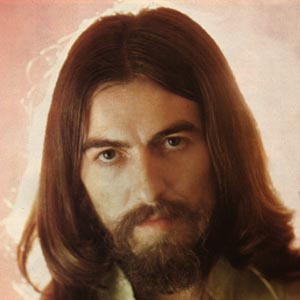 Side 2, Track 2: Wah-Wah. Very non-Beatlesesque in how it’s about to fall apart at any moment, with the horns and guitar overdubs too numerous to count. There’s a thrill in hearing a song like this. It’s at the core of the Rolling Stones appeal, for example. Another classic Harrison riff, with another assist from Clapton. The lyric is a snipe at some of the petty business disputes that ripped the band apart (or were threatening to, in this alternate reality). Recorded Summer 1970.
Side 2, Track 2: Wah-Wah. Very non-Beatlesesque in how it’s about to fall apart at any moment, with the horns and guitar overdubs too numerous to count. There’s a thrill in hearing a song like this. It’s at the core of the Rolling Stones appeal, for example. Another classic Harrison riff, with another assist from Clapton. The lyric is a snipe at some of the petty business disputes that ripped the band apart (or were threatening to, in this alternate reality). Recorded Summer 1970.
Side 2, Track 3: Mother. Raw and aching. A primal scream for relief from childhood pain that never leaves us. It was somehow released as a single and actually peaked at No. 43, as a nearly four-minute festering wound. This song highlights Lennon’s amazing vocal ability. The two most underrated things about the Beatles are Lennon’s singing and McCartney’s bass playing. And Harrison, always Harrison. Recorded September 1970.
Side 2, Track 4: That Would be Something. Harrison loved it, for some reason. It’s okay. But we have to get some McCartney songs in here and this was not a fertile period for him. Not great, not even good. But not an album wrecker.
Side 2, Track 5: Working Class Hero. I wrote the lyrics to this song as my essay in business class when I was a senior in high school and got an A. What can you say? Lennon, post-therapy and post-drug addiction, was peaking again after a pretty quiet year (for him). This was really his last great run of songs. Recorded Fall 1970.
Side 2, Track 6: Teddy Boy. A Beatles attempt is on Anthology. In the context of this album, it’s a perfect response to Mother. Putting them right after one another is perhaps too obvious. This is C-plus McCartney material, but it’s still McCartney. Recorded originally in 1969 with the Beatles.
Side 2, Track 7: God. “God is a concept by which we measure our pain.” Talk about getting in the last word. He’ll say it again, too, in case you missed it the first time. If this is the last Beatles album, its ending is as poignant as The End: “And so dear friends, you’ll just have to carry on. The dream is over.” But there’s also the uplifting call to believe in yourself and in the love you’ve made. Another epic Lennon vocal, too.
Album grade: Are you kidding me? Five stars, easily.

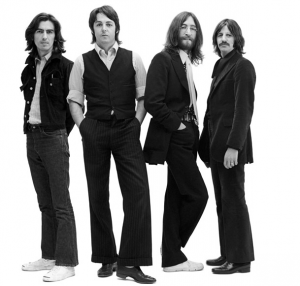
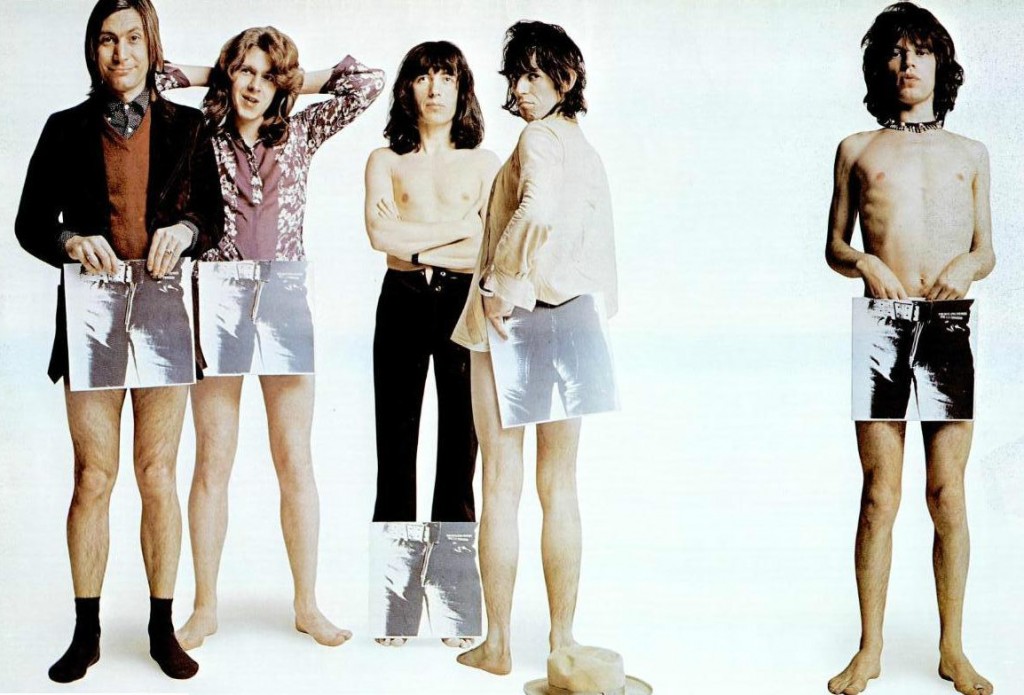




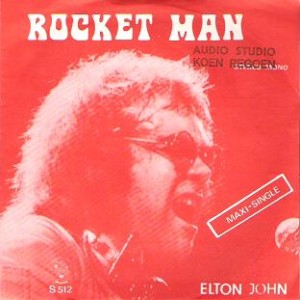






 Side 2, Track 2:
Side 2, Track 2: 